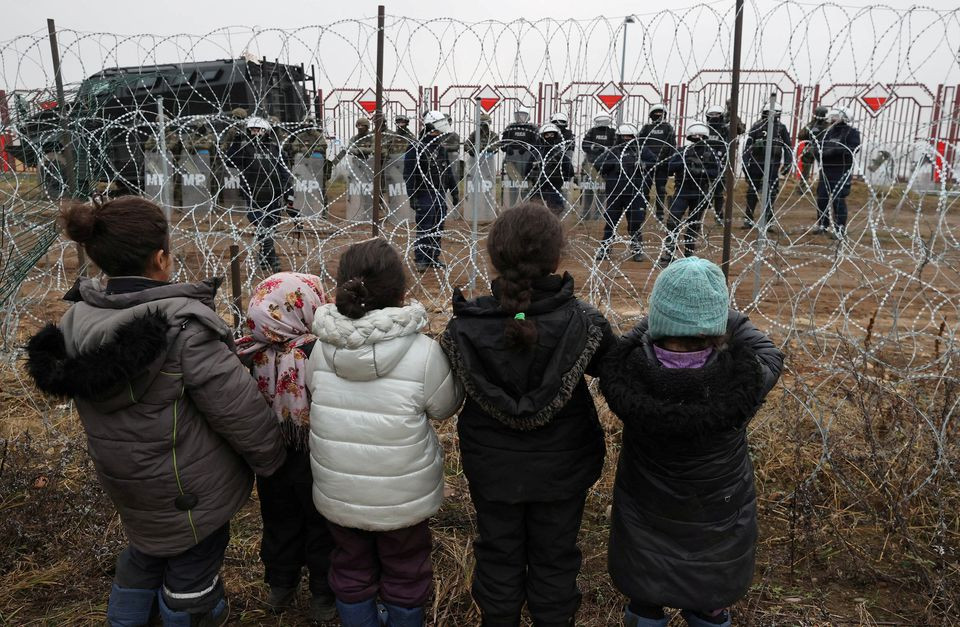The case of the refugee crisis, reparations and colonialism
The worldwide refugee and migrant crisis is the direct legacy of colonialism and neocolonialism practised by European and North American states. This makes the argument for former colonisers to take in refugees and migrants from colonised countries to compensate for the historic injustice they have committed

Every day families are forcibly evicted worldwide. People risk everything to flee war, natural catastrophes, poverty and hunger, sometimes with only the clothes on their backs. The refugee and migrant crisis is a complex phenomenon that must be addressed, not stopped.
Governments have failed to safeguard vulnerable people as required by law. The current relocation dilemma is unprecedented in scale. More than 82 million individuals have been forcibly relocated since World War II. Most people move within or near their home country.
Refugee and migrant crises are extensions of colonialism
Both colonialism and imperialism (a state's policy of extending a country's power and influence through colonization, use of military force, or other means) involve a dominant country controlling a vulnerable territory politically and economically. The colonial powers strive to impose their own languages and cultures on the native peoples of the countries they colonise, causing large-scale migration, displacement, and refugees.
From ancient times to the early 20th century, powerful governments have openly practised colonialism. And by 1914, European powers occupied every continent except for Antarctica.
Although colonialism is often less explicit today, it remains an active force.
If we are to look at the recent past - say the last 50 years - and examine the largest migration trends, how colonialism still remains an active force. In this current climate and geopolitics, we need to focus not only on the colonial past, but we should also recognise the present implications of colonialism for colonised people in former colonies.
Living conditions in many colonised countries that compel people to emigrate can be attributed to bad government, repression, fratricidal warfare, and the misery of conquered civilisations. Some scholars consider colonialism finished yet colonial influences remain crucial in postcolonial states, and thus other scholars discuss neocolonialism.
Repression, violent wars and poverty continue to push the inhabitants of postcolonial governments to depart their home countries to escape war-torn and poverty-ridden situations and to seek a "better life" in former colonist countries like Europe.
Again, if we are to study recent history, we can easily understand how Europe's past colonial practices in Asia and Africa are the root cause of most ethnic and national border conflicts today. Colonial and imperial governments created artificial borders across ethnic and religious lines to prevent insurrection.
Decolonisation raised awareness of the inequity of geographical borders, leading to competing claims by neighbouring countries and military clashes that delayed the growth of newly independent governments for a long period.
In many cases, newly independent governments of former colonies became enmeshed in geopolitics as opposing superpowers vied for their support, diverting their attention from autonomous development and reconstruction during the Cold War.
Thus, conquerors' immoral border control led to chaos in colonised countries.
Colonising powers concentrated governance in several locations. Instead of honouring the people's ancient geographical limits, conquerors constructed political borders. Many ethnic groups that have never collaborated before were forced to start doing so.
Other communities found their traditional region divided by two colonial regimes, destroying family and kinship ties. Colonialism created large, ethnically split countries prone to civil war during and after colonialism. The colonists produced political instability, which caused internal civil strife and forced people to leave their homes.
European colonisers treated colonised peoples and their cultures paternalistically, as Britain did in the Indian subcontinent, among other places. They thought they were spreading Christianity and civilisation. This harmed colonised populations' conventional views and values. Some groups rejected their traditional beliefs and converted to Christianity to placate invaders. Converts were often favoured in the colonial administration.
French governors in Cambodia and Laos favoured Vietnamese clerks. Colonists favoured some ethnic groups over others, increasing ethnic conflicts. Most colonies had frequent military coups, which hindered growth and development, enriched the governing class, and incited hatred among other populations. Perceived ethnic superiority or inferiority caused conflict.
Colonialists used the 'divide and conquer' tactic. They favoured one race or religion above another. Defiance-prone people were avoided at all costs. Minority populations were kept economically disadvantaged as a social punishment.
After the colonial authorities left, these and other tactics produced animosity and hatred, leading to violence between communities and ethnic groupings. By establishing division, they wanted to exert power smoothly because indigenous unity threatened them.
Moreover, neocolonialism has plagued all former colonies since independence. Many postcolonial republics had reactionary, economically uninformed citizenry who could not or would not modify the colonial system.
Former colonists still utilise neocolonialism to subjugate formerly colonised nations. All layers of decision-making are excluded. The potential of the people is not achieved. These countries have never been permitted to stand on their own. Due to their location and natural resources, many post-colonies face refugee and migration crises.
Refugee and migration crises are colonialism's legacy. Inequality, poverty, conflict and colonialism all contribute to the refugee crisis. Colonialists cannot reject responsibility for the postcolonial predicament.
They must act to mitigate the harm they have caused through the act of colonialism. They must be more practical with refugees and migrants. Legally and morally, they should support refugees and migrants from postcolonial countries.

Mumtahena Ferdousy is a LLM student at Khulna University.
Disclaimer: The views and opinions expressed in this article are those of the author and do not necessarily reflect the opinions and views of The Business Standard.



 Keep updated, follow The Business Standard's Google news channel
Keep updated, follow The Business Standard's Google news channel
















